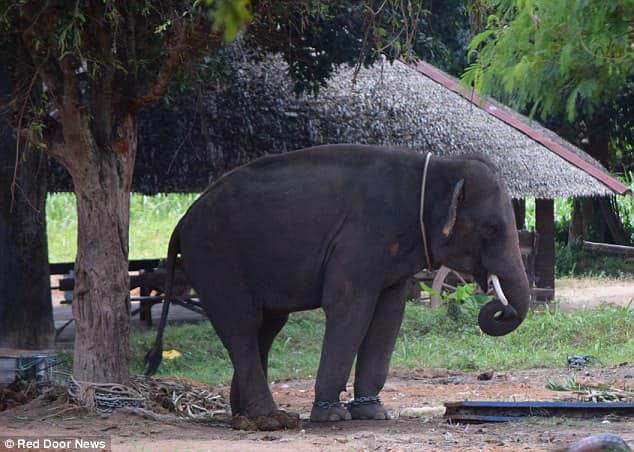229 total views
Homily for Friday of the 1st Wk in Ordinary Time, 14 Jan 2022, 1Sam 4, 1-11, Mk 2:1-12
I have told you before about the analogy of an elephant that gets used to being tied by a chain on a tree. They say even if you replace the chain with a flimsy string, the poor animal will stay in its place. Liberating it from captivity involves more than just removing its chains. You have to liberate it gradually from its conditioning.
This is what God seems to be telling Samuel in our first reading today. We’re told that the people are asking for a king to rule over them. Samuel is distressed by their request. He is taking it personally, as if he is the one being rejected by the people. In a roundabout way, God tells the prophet not to take it personally. “It’s not you but me whom they’re rejecting,” he says to him. “I set them free from slavery so that they could get used to living in freedom and governing themselves, living the covenant and following my commandments. But it looks like they have not yet outgrown their slave mentality. They would rather be ruled by a leader who will tell them what to do, one who will govern them like a tyrant, rather than decide together what is right by discerning my will with a prophet to guide them.”
So God seems to be saying, “Ok, if that is what they want, let them have it. But when they are back to being reduced to slavery again and they cry out to me for help, I will say, ‘But that is what you chose for yourselves, my children.’” Remember the saying, “Take care what you ask for…?”
Sometimes we really just have to learn our lessons the hard way. In Tagalog we would say, “Marami pa tayong kaning kakainin.” (We have many more grains of rice yet to eat…)
We have a similar situation in our Gospel story about the healing of the paralytic at Capernaum. Jesus somehow knew that the disease that was keeping the man in a state of paralysis was not just physical but mental or spiritual. I have encountered many similar situations where people cannot function well physically, not because they are really incapacitated but because they are bogged down by guilt, or by fears, by anger or resentment, or by some unresolved issues in their past, like some past traumas or experiences of abuse. These are like an inner voice that keeps rewinding and replaying itself over and over again, making them resigned to the thought that they are worthless, useless, hopeless, good for nothing or beyond redemption.
Even our national hero Jose Rizal knew that it took more than an armed revolution to liberate Filipinos from Spanish colonial rule. He knew that we had to liberate ourselves first from our colonial conditionings that had become deeply rooted in our consciousness after almost more than three centuries of subservience to our colonal masters. He believed that it would take a lot of education or reeducation to truly be liberated. That there were many things we had yet to unlearn before we could learn to stand on our own feet as a nation.
It is more challenging to heal attitudes that have been atrophied or immobilized for a long time, like the attitudes of Pharisees in the Gospel. It is a lot easier to cure legs and limbs and make people stand on their feet again, than to heal minds and liberate people from their conditionings and restore their functionality.
Maybe it goes the same way also with us as we prepare ourselves for another election and choose a new set of leaders for our country. The greater challenge is how to free our people from fatalism, from being resigned to a politics of patronage. How to get them to believe that they are not powerless, that we can make things better if we will it. That we need do not need to be resigned to being a paralyzed nation. That we need to set ourselves free from the tendency to belittle ourselves and just submit to our fate. Today, we should imagine Jesus addressing his words to us as a nation, “STAND UP, PICK UP YOUR MAT AND GO HOME.”


















